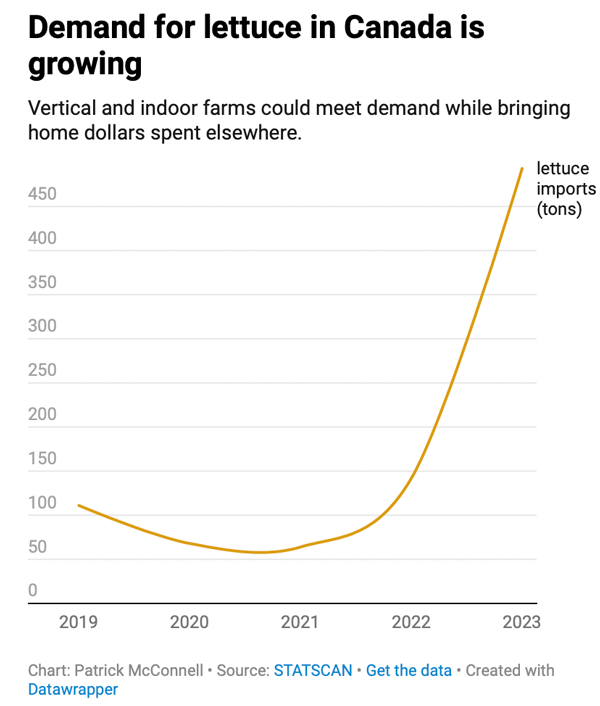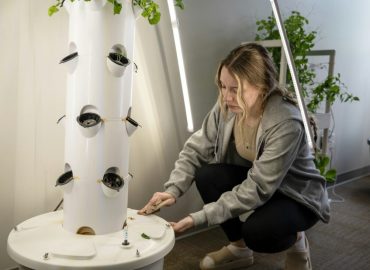Trade War Vertical Farming

How the U.S.-Canada trade war is fueling vertical farming in B.C.
Farmers say millions of investment dollars won’t guarantee success
Trade War Vertical Farming | Patrick McConnell |
When Ranjot Singh Dhaliwal started Sustainabite Fresh Farms in a shipping container in Surrey, he knew he couldn’t repeat the mistakes of hi-tech indoor farms closing their doors around the Lower Mainland. “What I have seen in vertical farms is they put a lot of money in. So much unnecessary technology that was not needed. While I was building it, my main focus was to make it profitable,” explained Dhaliwal.
Dhaliwal has seen many indoor farms fail in recent years; a sentiment echoed by Chris Arthur of Sky Harvest, a organic microgreens farm inside an unassuming industrial space in Richmond.
“There was a bit of a bubble five, seven years ago, where sort of indoor agriculture agtech was the next Silicon Valley boom and huge engineering resources were put into sort of reinventing the wheel and growing plants.” – Chris Arthur, CEO of Sky Harvest.
Since Trump’s 25 per cent tariffs were put into place in February, the B.C. Centre for Agritech Innovation (BCCAI) has continued to invest millions into agriculture technology projects. “This is something that the government did a really good job in, like, enabling small farmers to actually build something that will be beneficial for them and for the consumers,” said Dhaliwal.
He received $20, 000 dollars from BCCAI for a food safe packing facility, which was essential for his one-year-old business growing fresh basil, tulsi and holy basil to get off the ground.
By vertically cultivating high value herbs under LED lights inside a repurposed shipping container Dhaliwal says he can grow organic produce using 90 per cent less space and water. He received $20, 000 dollars from BCCAI for a food safe packing facility, which was essential for his one-year-old business growing fresh basil, tulsi and holy basil to get off the ground. By vertically cultivating high value herbs under LED lights inside a repurposed shipping container Dhaliwal says he can grow organic produce using 90 per cent less space and water.
Sky Harvest has been producing organic microgreens since 2012. Arthur attributes this success to not overinvesting taking venture capital money to invest millions in automation. “I’m investing not just in profitability, but looking at safety, for example, of the staff and particularly, ergonomics and occupational health, which is always a problem in farming,” he explained.
Arthur and Dalhiwal both say they have seen upticks in sales since the push to by Canadian in response to Trump’s tariffs. They are also adamant their operations could expand to feed Canada if the government and the few, but powerful, food distributors made way for small farmers to enter the market.
Arthur says that in Europe, indoor and vertical farming is much more common, like these pictured trays in London.
(Submitted by Chris Arthur)

Original Article: https://bcitnews.com/how-the-trade-war-is-fueling-vertical-farming-b-c/
The post Trade War Vertical Farming appeared first on GROZINE.




